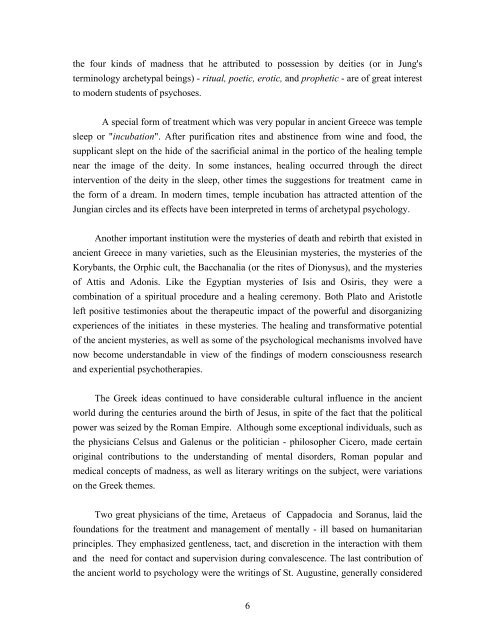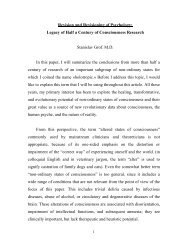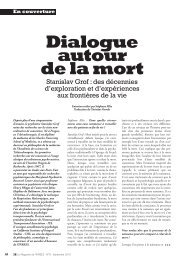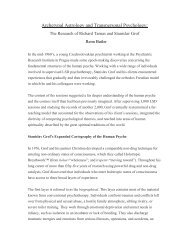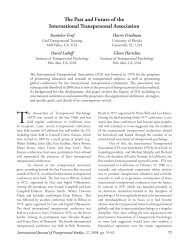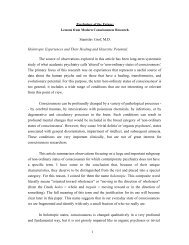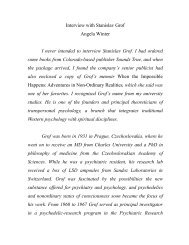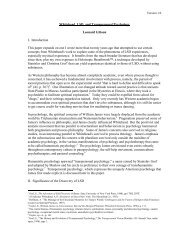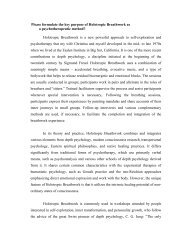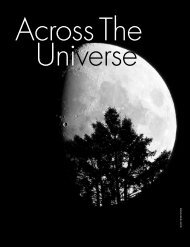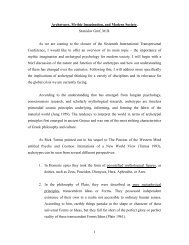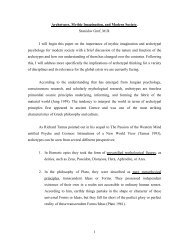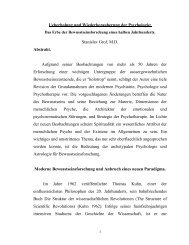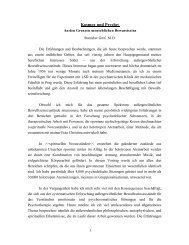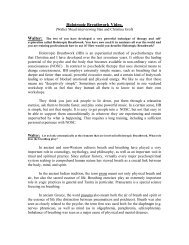1 PSYCHOSIS AND HUMAN SOCIETY: A Historical ... - Stanislav Grof
1 PSYCHOSIS AND HUMAN SOCIETY: A Historical ... - Stanislav Grof
1 PSYCHOSIS AND HUMAN SOCIETY: A Historical ... - Stanislav Grof
You also want an ePaper? Increase the reach of your titles
YUMPU automatically turns print PDFs into web optimized ePapers that Google loves.
the four kinds of madness that he attributed to possession by deities (or in Jung's<br />
terminology archetypal beings) - ritual, poetic, erotic, and prophetic - are of great interest<br />
to modern students of psychoses.<br />
A special form of treatment which was very popular in ancient Greece was temple<br />
sleep or "incubation". After purification rites and abstinence from wine and food, the<br />
supplicant slept on the hide of the sacrificial animal in the portico of the healing temple<br />
near the image of the deity. In some instances, healing occurred through the direct<br />
intervention of the deity in the sleep, other times the suggestions for treatment came in<br />
the form of a dream. In modern times, temple incubation has attracted attention of the<br />
Jungian circles and its effects have been interpreted in terms of archetypal psychology.<br />
Another important institution were the mysteries of death and rebirth that existed in<br />
ancient Greece in many varieties, such as the Eleusinian mysteries, the mysteries of the<br />
Korybants, the Orphic cult, the Bacchanalia (or the rites of Dionysus), and the mysteries<br />
of Attis and Adonis. Like the Egyptian mysteries of Isis and Osiris, they were a<br />
combination of a spiritual procedure and a healing ceremony. Both Plato and Aristotle<br />
left positive testimonies about the therapeutic impact of the powerful and disorganizing<br />
experiences of the initiates in these mysteries. The healing and transformative potential<br />
of the ancient mysteries, as well as some of the psychological mechanisms involved have<br />
now become understandable in view of the findings of modern consciousness research<br />
and experiential psychotherapies.<br />
The Greek ideas continued to have considerable cultural influence in the ancient<br />
world during the centuries around the birth of Jesus, in spite of the fact that the political<br />
power was seized by the Roman Empire. Although some exceptional individuals, such as<br />
the physicians Celsus and Galenus or the politician - philosopher Cicero, made certain<br />
original contributions to the understanding of mental disorders, Roman popular and<br />
medical concepts of madness, as well as literary writings on the subject, were variations<br />
on the Greek themes.<br />
Two great physicians of the time, Aretaeus of Cappadocia and Soranus, laid the<br />
foundations for the treatment and management of mentally - ill based on humanitarian<br />
principles. They emphasized gentleness, tact, and discretion in the interaction with them<br />
and the need for contact and supervision during convalescence. The last contribution of<br />
the ancient world to psychology were the writings of St. Augustine, generally considered<br />
6


